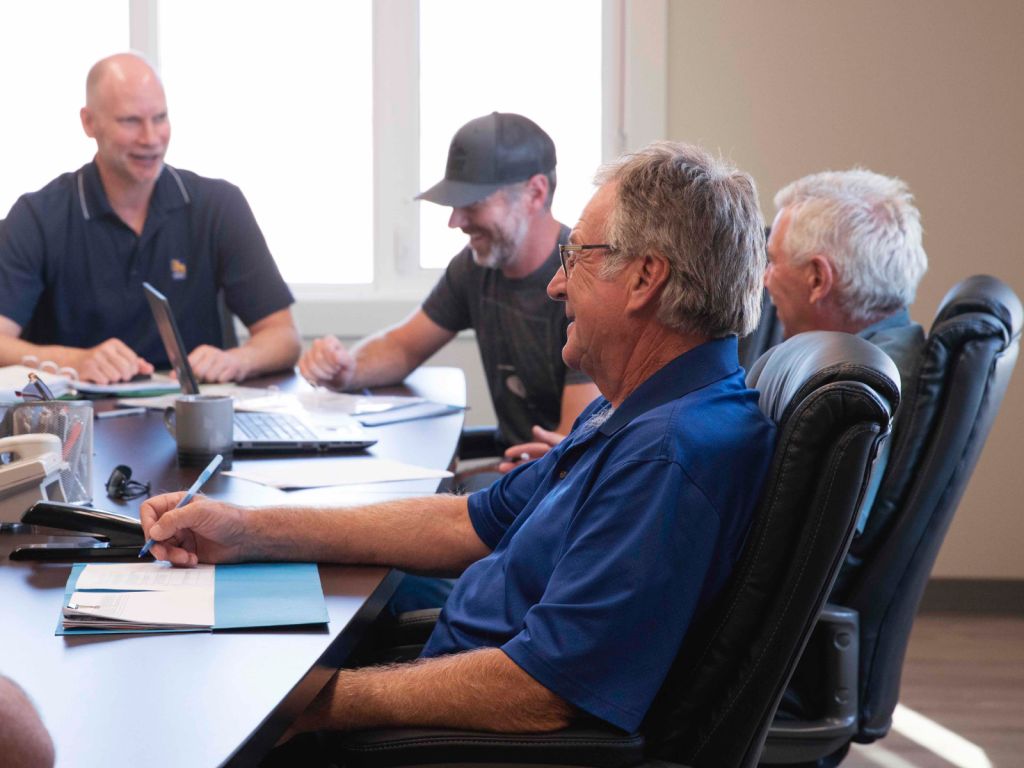Published January 20, 2022 • 4 Min Read
You know how it is in farming: opportunities often come out of the blue. What do you do when your neighbor tells you they want to sell land and you’re their first choice? Or a high-quality, low-hours, well-priced piece of used equipment turns up at the local dealer, and you’re thinking it might be a good investment, but you know in two days’ time, it will be gone.
Should you buy? Should you pass? These are scenarios Kit Moore, an agricultural accountant, is discusses often with his farm clients.
“I have a process I recommend to help my clients work through their decision,” says Moore, President and Strategy Consultant with BluePrintCPAs in Chatham, Ont. “First of all, we place a lot of emphasis on good business practices. That’s the foundation.”
Building on the client’s sound business practices, Moore poses four questions to consider before you make the decision.
Is this a tax move?
Farming is one of the few industries in Canada that can use cash-based rather than accrual-based accounting. Unfortunately, this can lead to less-than-ideal purchase decisions.
“It’s very common for farmers to make large purchases at year-end to get the tax deduction,” says Moore. “There can be downsides to this. To use an expression accountants use, is the tax ‘tail’ wagging the business ‘dog’? Before you jump to a purchase made for tax reasons, it’s important to also have a business case.”
How will this affect your finances?
For an average-sized farm (500 or so acres, in Moore’s area), a large and quickly arranged purchase can have significant impacts on the farm business. Deciding yes or no demands detailed and current financial information. Many farmers have this readily available, but some do not.
“You still have farm operators who are keeping the books, yes, but some don’t have current accounting data,” he says. “It’s important when making big decisions to know your financial position at any point in time.”
How will this affect the family?
Suppose you’re a 35-year-old farmer working alongside your 60-something parents. You’re in line to assume control in the future, but nothing has been signed. All of a sudden, the senior generation makes a large purchase whose merit you question. You are, to put it mildly, concerned.
“One area where I see farm families struggle is in making things work for the business and for the family,” says Moore. “One decision can alter the course of future farm transition discussions, for both a child who works on farm and any who are off-farm.”
How can you get around this? Moore recommends what he calls “parallel planning“, which considers business needs and family needs as separate but related aspects. This is why the planning process should occur on two levels at once. When this approach is leveraged, the bigger decisions should be easier to make.
Does it suit your business plan?
When big decision need to be made, a formal business plan can provide helpful guardrails. If you’ve built a plan you believe in, the question of needing and affording a new purchase can be seen more clearly.
It’s easier to see tax as one consideration, not the main one. “I never like seeing a business plan being affected by the decision to purchase something simply for tax reasons,” says Moore.
Farmers can also consider whether there’s a workable and available alternative to the purchase in question. Rent land vs buy? Lease vs purchase equipment? Used vs new? More equipment vs hire custom work?
Beyond the human decision-making process, technology will play an important role. Farm business software makes it easier to run “what-if” scenarios and understand how a proposed purchase will affect the farm’s finances and productivity. Moore sees more farms taking this data-based approach and he recommends that others do the same when it makes sense.
“The catalyst for this change is handing off to the younger generation,” he says. “This generation is concerned with modernization. I increasingly believe that, if you have a business plan and keep up with technology, you will have a competitive advantage over other farms.”
If your proposed purchase is good for the farm, welcomed by the family, aligns with your business plan and isn’t unduly weighted to tax, you’re in the decision zone. The rest is up to you.
To learn more and help take your agri-business to the next level, consider exploring the new University of Guelph Foundations in Agricultural Management course, created in collaboration with RBC & Farm Credit Canada. Invest in your Business. Invest in Yourself.
This article is intended as general information only and is not to be relied upon as constituting legal, financial or other professional advice. A professional advisor should be consulted regarding your specific situation. Information presented is believed to be factual and up-to-date but we do not guarantee its accuracy and it should not be regarded as a complete analysis of the subjects discussed. All expressions of opinion reflect the judgment of the authors as of the date of publication and are subject to change. No endorsement of any third parties or their advice, opinions, information, products or services is expressly given or implied by Royal Bank of Canada or any of its affiliates.
Any information, opinions or views provided in this document, including hyperlinks to the RBC Direct Investing Inc. website or the websites of its affiliates or third parties, are for your general information only, and are not intended to provide legal, investment, financial, accounting, tax or other professional advice. While information presented is believed to be factual and current, its accuracy is not guaranteed and it should not be regarded as a complete analysis of the subjects discussed. All expressions of opinion reflect the judgment of the author(s) as of the date of publication and are subject to change. No endorsement of any third parties or their advice, opinions, information, products or services is expressly given or implied by RBC Direct Investing Inc. or its affiliates. You should consult with your advisor before taking any action based upon the information contained in this document.
Furthermore, the products, services and securities referred to in this publication are only available in Canada and other jurisdictions where they may be legally offered for sale. Information available on the RBC Direct Investing website is intended for access by residents of Canada only, and should not be accessed from any jurisdiction outside Canada.
Share This Article






